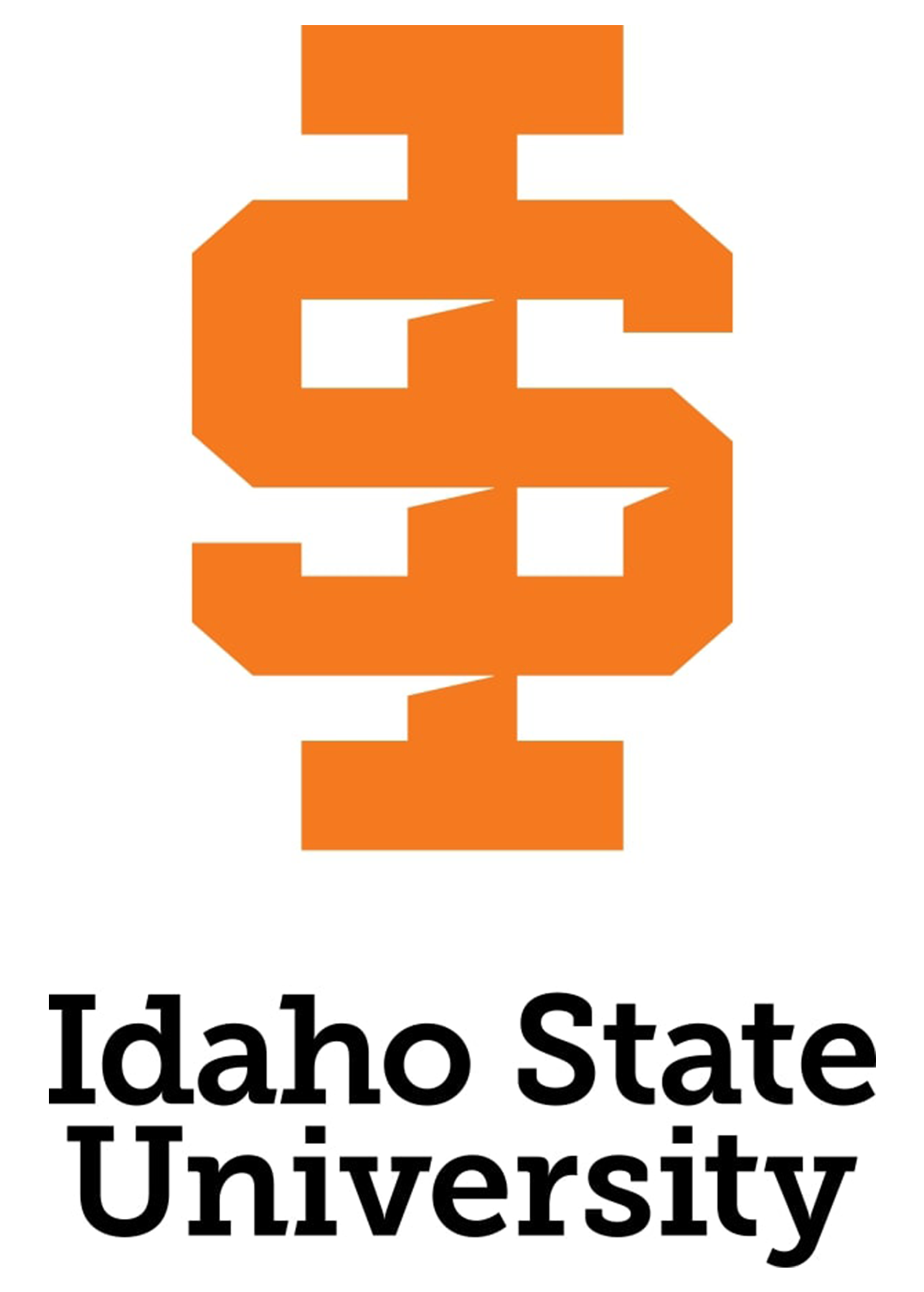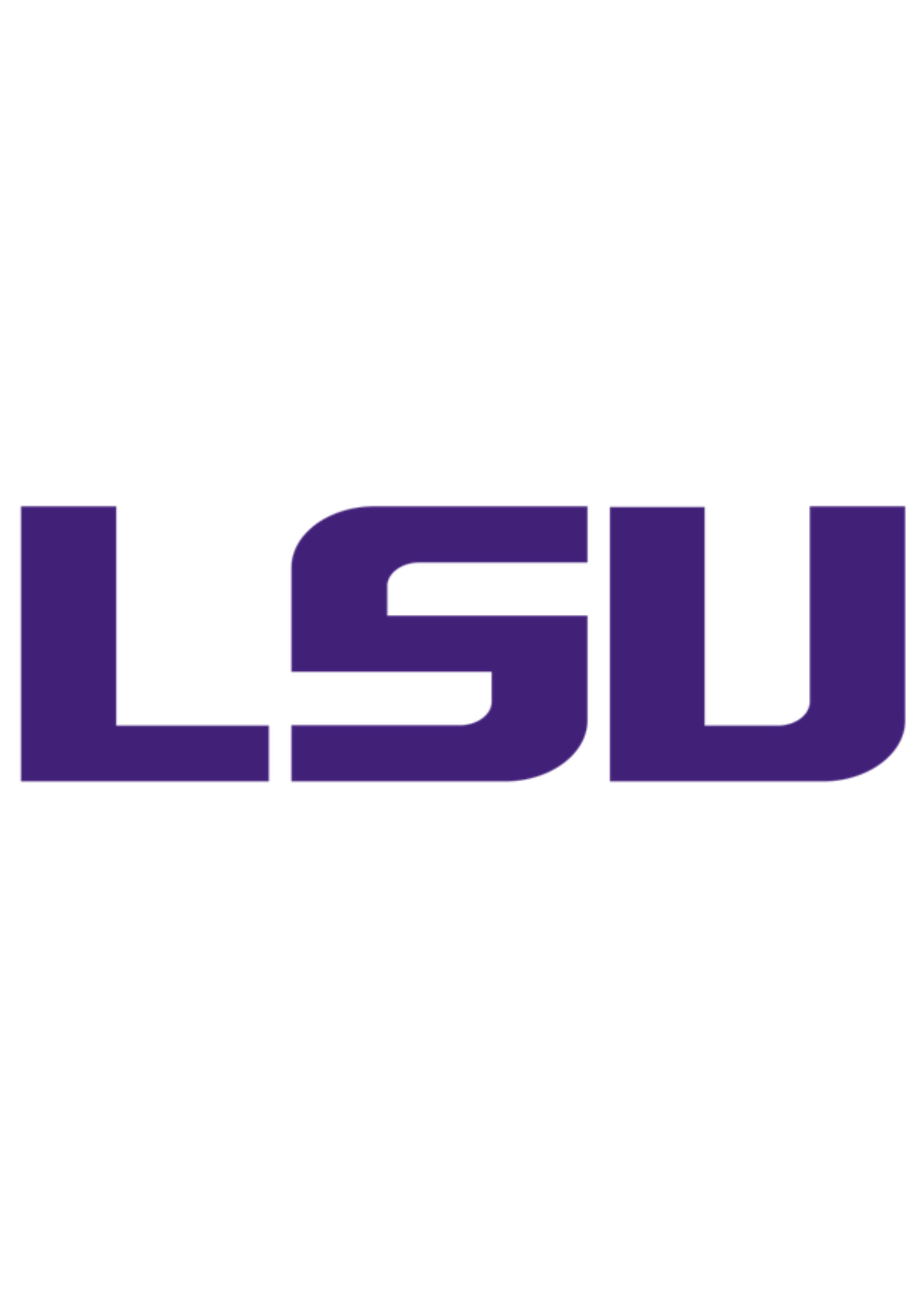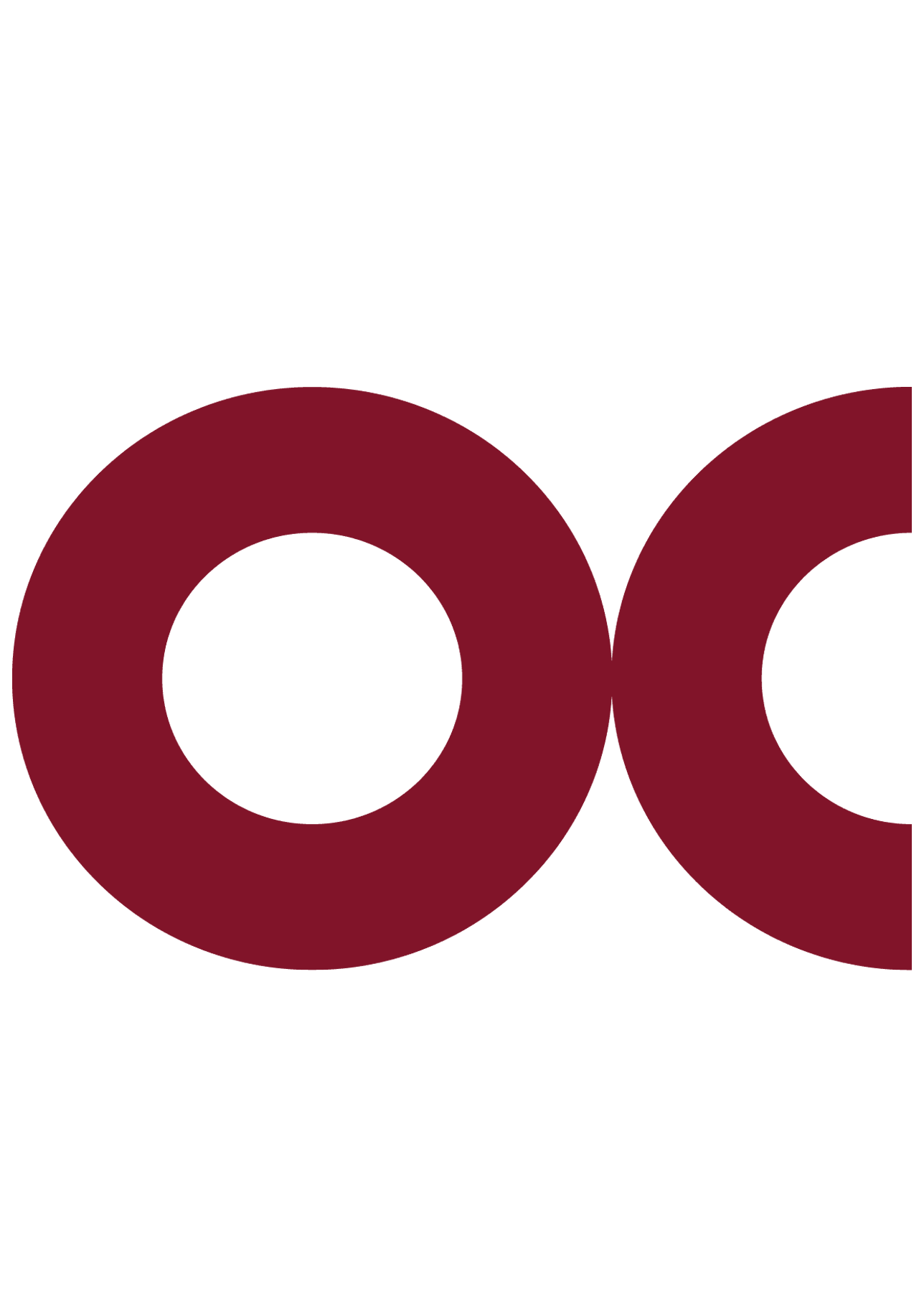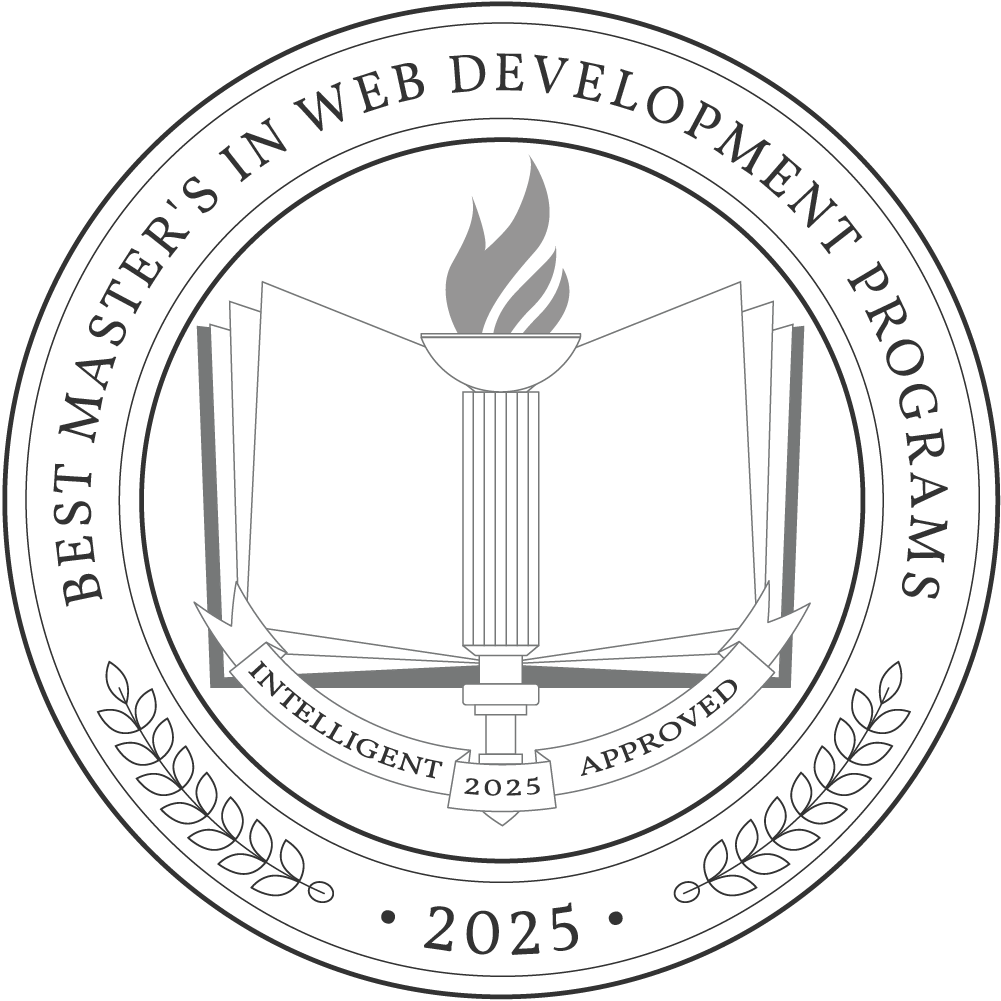Web development is a lucrative career that empowers creativity, problem-solving, and high job satisfaction. With the Bureau of Labor Statistics reporting about 19,000 openings between 2022 and 2023, web developers have many opportunities across nearly every industry as e-commerce expansion and other demands increase the need for skilled professionals.
A master’s degree in web development program provides students with the advanced skills needed for competitive roles. While web developers earn an average of $84,960 yearly, students with master’s degrees may qualify for even higher-earning roles. Graduate programs also develop expertise and experience, allowing students to pursue senior roles in IT or project management.
Students can complete a master’s in web development in two years, often transitioning to the workforce via internships or work experience programs. Graduate degree programs cost an average of $20,513 per year.
Why Trust Us
The Intelligent.com Higher Education Team is dedicated to providing students with independent, equitable school and program rankings and well-researched resources. Our expert-driven articles cover topics related to online colleges and programs, paying for school, and career outlooks. We use data from the U.S. Department of Education’s College Scorecard, the National Center for Education Statistics, and other reputable educational and professional organizations. Our academic advisory team reviews content and verifies accuracy throughout the year for the most current information. Partnerships do not influence rankings or editorial decisions.
- Analyzed over 2,000 national, accredited, and nonprofit colleges and universities
- 800+ rankings pages are reviewed and updated yearly
- Content is informed by reputable sources, surveys, and interviews with academic advisors and other experts
- Over 100 data points are reviewed for accuracy and quality throughout the year, including sources
How we rank schools
Our list features the best Master’s in Web Development degree programs at top colleges nationwide. Each school featured is a nonprofit, accredited institution — either public or private — with a high standard of academic quality for post-secondary institutions.
We evaluated each school’s program on tuition costs, admission, retention and graduation rates, faculty, reputation, and the student resources provided for online students. We collected data from trusted sources like the National Center for Education Statistics, individual school and program websites, school admissions counselors, and other data sources. Then, we calculated the Intelligent Score on a scale of 0 to 100 based on the following criterion:
Academic Quality:
- Admission rate versus enrollment rate
- Retention rate of students who return after year one
- Accreditation status (regional and programmatic)
- Nonprofit status, both private and public institutions
Graduation Rate
- Overall graduation rate
- Total number of currently enrolled students, including diversity metrics
- Student-to-faculty ratio
Cost and ROI
- In-state and out-of-state per-credit tuition rates and fees
- Required credits to graduate
- Earning potential after graduation
- Availability of federal student loans, scholarships, and other financial aid options
Student Resources
- Available student services for online-only and hybrid programs
- On-campus amenities like tutoring centers and the number of libraries
Read more about our ranking methodology.
Best 6 Accredited Master's in Web Development Programs
FiltersInstitution Type
Status
- Intelligent Score
- Alphabetically By University Name
- Acceptance Rate
- Enrollment
- In-state Graduate Tuition
- Out-of-state Graduate Tuition
- In-state Undergraduate Tuition
- Out-of-state Undergraduate Tuition

Naval Postgraduate School
Intelligent Score: 99.54In-state: NA
Out-of-state: NA
In-state: $27,000
Out-of-state: $27,000
SAT: Not Applicable
ACT: Not Applicable
$1,350
On-Campus
WASC Senior College and University Commission
40

Idaho State University
Intelligent Score: 97.79In-state: $5,928
Out-of-state: $22,550
In-state: $7,982
Out-of-state: $7,982
SAT: N/A
ACT: N/A
Resident: $500
Non-Resident: $1,562
On-Campus
Northwest Commission on Colleges and Universities
30

LSU College of Art and Design
Intelligent Score: 95.66In-state: $8,038
Out-of-state: $8,038
In-state: $9,132
Out-of-state: $9,132
SAT: 1090-1300
ACT: 23-28
Resident: $484
Non-Resident: $939
On-Campus
National Association of Schools of Art & Design
45

Oklahoma Christian University
Intelligent Score: 93.68In-state: $24,550
Out-of-state: $24,550
In-state: $11,250
Out-of-state: $11,250
SAT: 1020-1250
ACT: 20-27
$605
On-Campus
Higher Learning Commission
30

Portland State University
Intelligent Score: 92.39In-state: $7,907
Out-of-state: $25,536
In-state: $14,652
Out-of-state: $14,652
SAT: 1000-1190
ACT: 17-24
Resident: $515
Non-Resident: $742
On-Campus
Accreditation Board for Engineering and Technology
30

Purdue University Northwest
Intelligent Score: 91.48In-state: $22,056
Out-of-state: $29,047
In-state: $20,573
Out-of-state: $20,573
SAT: 950-1170
ACT: 18-24
Resident: $330
Non-Resident: $495 - $728
On-Campus
Higher Learning Commission
30
How to Choose a Master’s in Web Development Program
Choose your area of study
A master’s in web development degree program helps students develop the advanced skills and knowledge necessary to build and maintain websites. Keep your career goals in mind as you explore degree programs — some offer different concentrations, opportunities, or other educational outcomes, and it’s important that your education aligns with your professional objectives.
Web development often doesn’t have its own designated master’s degree. Instead, most graduate programs applicable to web development careers fall under computer information or communications technology and offer concentrations in web development.
These graduate programs develop an advanced understanding of technical concepts such as algorithms, web and mobile applications development, programming languages, and data structures related to web development. These programs typically have diverse curriculums with many opportunities to specialize in user experience (UX) design, web design, database management, cybersecurity, and other web technologies or methods.
Alternatively, prospective students can consider graduate programs in related or overarching fields or with a concentration in web development. These options include:
- Computer Science. Computer science master’s programs broadly cover topics in operating systems, databases, computer architecture, and more to develop diverse skills that apply to web development and other fields.
- Software Engineering. Covering topics such as software design, programming languages, testing procedures, and project management, a master’s in software engineering emphasizes skills that can apply to website development.
- Computer Programming. Computer programming graduate programs focus on coding language fluency and may offer specializations in front-end, back-end, or web security code development.
Research schools and programs
Prioritize accredited schools and programs as you research your options. As per the standards of the U.S. Department of Education, accrediting agencies evaluate program curricula and other details to ensure the quality of education. Students must attend a regionally accredited institution to qualify for federal financial aid, and many employers prefer graduates from these schools as they provide credibility for their skills in that field. Regionally accredited schools typically only accept credits from other accredited schools, which can help save students time and money should they choose to transfer.
Verify accreditation status with the Council for Higher Education Accreditation and the Database of Accredited Postsecondary Institutions and Programs. Research school and program websites for details on their accredited curriculums and graduate outcomes, and contact an admissions counselor for additional information and recommendations. For further insights, sign up for in-person and virtual school or program information sessions, campus tours, and other events.
Prepare for tests and applications
Requirements for web development programs vary, but they generally include the following:
- Application form and fees
- Four-year bachelor’s degree and transcript
- Letter(s) of recommendation
- Personal essay or statement
- Resume or CV
- GRE or GMAT scores
- TOEFL (for students educated in a non-English language)
Some programs may request additional materials or information, such as a portfolio of web development projects and related professional experience. Speak to an admissions counselor to verify program-specific requirements, eligibility, deadlines, and other details that can help strengthen your application.
Select your program
The right program for each student depends on their career and educational goals as well as their needs and preferences. Certain factors may influence program selection more than others depending on individual circumstances — for example, many students study for graduate programs in conjunction with their existing career and may require part-time, hybrid, online, or other flexible course delivery and logistics options to suit their schedule.
Other decision factors include:
- Curriculum
- Concentrations
- Location
- Networking opportunities
- Campus amenities and resources
- Cost and financial aid
- Research or capstone project requirements
Determine how you’ll pay for your degree
Financial aid counselors from your chosen institution can provide program-specific information regarding tuition, campus fees, costs for books and supplies, and other expenses. Complete the Free Application for Federal Student Aid (FAFSA) to qualify for need-based federal loans, scholarships, grants, and other financial assistance.
Graduate students can explore other funding options, such as fellowships or assistantships through their schools, which offer stipends, salary, or tuition coverage. Schools, non-profit foundations, and private organizations may also offer need- or merit-based funding, and some companies provide employees with tuition assistance benefits.
What Can You Expect From a Master’s in Web Development Program?
Graduate web development programs vary, but students can generally expect to learn advanced aspects of website design, development, and implementation using mainstream programming languages and frameworks. Students develop practical skills for analyzing business challenges and webpage audiences, assessing risk, ensuring web security, and other elements of web development.
Exact curriculums vary depending on students’ concentrations, but most offer a blend of theoretical content and practical application via projects and lab-based study. Students may also gain practical or professional experience through research projects, internships, seminars, and work co-ops. Some programs assign academic and career mentors to students to help guide their focus and career development.Most programs require between 30 and 48 credits for graduation and a thesis or capstone project. Programs typically take about two years to complete and offer flexible course delivery methods and pacing.
Potential courses you’ll take in a master’s in web development program
- Full-Stack Web Development. Students integrate front-end tools and content with back-end architecture and databases through the fundamental concepts and techniques of full-stack web development. Topics may include Web APIs, CSS, JavaScript, Python, and web development frameworks.
- Database Design and Programming. This course covers the principles and best practices for managing website database design and employing structure query language. Topics may include data definition, transaction management, and database administration.
- Website Optimization. To create websites that attract and engage visitors, students learn how to optimize desktop and mobile websites with user interface and user experience. This course usually builds fluency and capability with JavaScript, HTML, and CSS.
- Cyber Security Technology and Management. An in-depth exploration of topics related to the management and security of website data, such as access control systems, legal and ethical issues, and security models. Technology topics may include viruses, worms, security protocols, and encryption.
Master’s in Web Development Degree Frequently Asked Questions
How do I apply to a master's in web development degree program?
Most school websites feature a portal that guides students through the application process. Requirements vary, but applicants typically must provide digital copies of transcripts, letters of recommendation, personal statements, and resumes. An admissions counselor can also provide assistance, confirm deadlines or requirements, and offer advice on strengthening your application.
How much does a master's in web development degree cost?
The average graduate program tuition is $20,513 per year but can vary depending on the field. Out-of-state or private institutions tend to result in higher tuition.
Other factors, such as course delivery method, required materials, and local cost of living, can affect your yearly expenses. Federal financial aid and other funding can reduce your upfront costs.
How long does it take to earn a master's in web development degree?
Most web development graduate programs require between 30 and 48 credits and typically span about two years with full-time study. Some programs permit self-pacing or accelerated study for degree completion in as little as a year.

